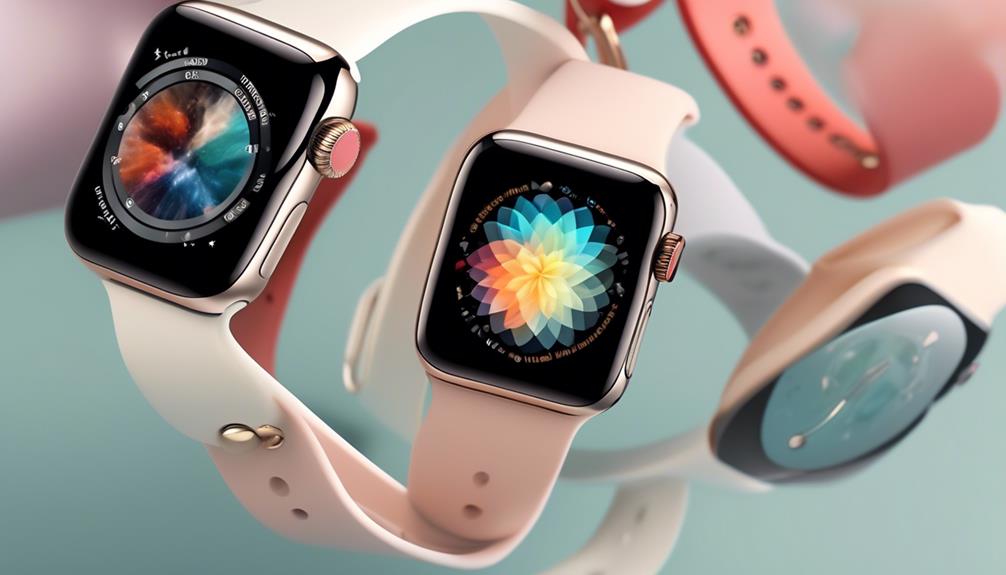Indulging in ice cream while dealing with gestational diabetes may appear contradictory initially. However, what if we could provide you with a way to enjoy this treat without feeling guilty?
Oppo Brothers' ice cream opens up a world of possibilities for those with gestational diabetes looking for a sweet escape. With a focus on lower-carb options and flavors that rival traditional favorites, Oppo ice cream offers a tantalizing solution to satisfy your cravings.
But how does this creamy delight fit into a balanced diet for gestational diabetes? Let's explore the sweet possibilities together.
Key Takeaways
- Prioritize low-carb options for blood sugar control.
- Check labels for carb and sugar content.
- Pair with protein-rich foods.
- Monitor blood sugar levels post-consumption.
Best Ice Cream Brands for Gestational Diabetes
When managing gestational diabetes, we recommend opting for Yasso Bars as they offer a satisfying choice with a 7/10 overall rating and are priced at $4.98 for a 4-pack. Yasso Bars provide a delicious treat without compromising your health goals during pregnancy.
Enlightened Ice Cream may not be the best option due to its low 2/10 rating attributed to poor texture and a high price of $9 per pint.
Halo Top, priced at $4.48 per pint, scores a 5/10 overall rating, but some may find the texture less satisfying.
Rebel Ice Cream, priced at $5.49 per pint, earns a 6/10 rating after softening, although watch out for potential aftertaste concerns.
For those seeking a top-notch choice, Johnny Pop Popsicles stand out with a stellar 9.5/10 overall rating, offering creamy texture and beneficial fat-protein support, making them an excellent option for managing gestational diabetes.
Managing Carbohydrate Intake With Ice Cream

To effectively manage gestational diabetes, prioritizing ice cream options with low carbohydrate content is essential for regulating blood sugar levels. When managing carbohydrate intake with ice cream, it's crucial to be mindful of portion sizes and opt for low-carb or carb-free varieties.
Reading nutrition labels can help in making informed choices by checking the carb and sugar content in different ice cream options. For individuals with gestational diabetes, choosing keto-friendly or low-carb ice cream like Halo Top Vanilla Bean can be a suitable option to satisfy sweet cravings while managing blood sugar levels effectively.
Tips for Choosing Healthier Ice Cream Options
Prioritizing healthier ice cream options involves selecting varieties with lower carbohydrate and sugar content to support better blood sugar management for individuals with gestational diabetes. When choosing ice cream, opt for low-carb or keto-friendly options to help manage blood sugar levels effectively. Always check the nutrition labels to make informed choices, paying close attention to the carb and sugar content.
Avoid ice creams with hidden sugars like fructose or corn syrup, as these can spike blood sugar levels. Additionally, consider portion-controlled servings to control carb intake more efficiently. Popular choices like Halo Top Vanilla Bean offer a keto-friendly alternative that can satisfy your sweet cravings while keeping your blood sugar in check.
Incorporating Ice Cream Into Your Meal Plan

Incorporating ice cream into a gestational diabetes meal plan requires mindful selection of lower-carb or sugar-free options to support blood sugar management effectively.
To enjoy ice cream while keeping your blood sugar levels stable, consider the following tips:
- Choose Lower-Carb Options: Opt for sugar-free or lower-carb ice cream varieties to minimize the impact on blood sugar levels.
- Pair with Protein: Pairing ice cream with protein-rich foods like nuts or Greek yogurt can help slow down the absorption of sugar into the bloodstream.
- Add Healthy Fats: Incorporating healthy fats such as avocado or nuts into your ice cream dessert can further aid in balancing blood sugar response.
Monitoring Blood Sugar Levels After Eating Ice Cream
After enjoying ice cream, it is essential to monitor blood sugar levels to effectively manage gestational diabetes and understand its impact on our bodies. Checking blood sugar levels 1-2 hours after consuming ice cream allows us to gauge its effect. Personalized management can be achieved by tracking how different types and amounts of ice cream influence blood sugar. Understanding the glycemic index of ice cream provides insights into its impact on blood sugar levels. Consistency in monitoring blood sugar responses to ice cream guides dietary choices and strategies for blood sugar control.
| Ice Cream Type | Blood Sugar Response |
|---|---|
| Low-fat vanilla | Minimal increase |
| Chocolate fudge | Moderate spike |
| Dairy-free sorbet | Stable levels |
| Premium gelato | Significant rise |
Frequently Asked Questions
Can I Eat Ice Cream With Gestational Diabetes?
Yes, you can enjoy ice cream in moderation with gestational diabetes. It's important to choose low-carb or carb-free options to help manage blood sugar levels. Portion control and ingredient awareness are key when selecting ice cream.
Consulting a healthcare provider or dietitian for guidance on healthy dessert choices is recommended. Opting for ice creams like Oppo Brothers, with lower carb content and various flavors, can be a suitable treat for gestational diabetes.
What Type of Ice Cream Can Diabetics Eat?
When managing diabetes, it's important to choose ice creams with lower carbohydrate and sugar content. Look for options sweetened with natural sweeteners like stevia or erythritol.
Portion control is key to managing blood sugar levels. Some brands offer ice cream with higher protein and lower glycemic index, which can be beneficial.
Reading nutrition labels is crucial for finding suitable options. Make informed choices to enjoy ice cream while keeping your health in check.
What Is a Good Dessert for Someone With Gestational Diabetes?
We suggest exploring various dessert options when managing gestational diabetes.
It's essential to prioritize treats with lower carb content, like Oppo ice cream, which provides delicious flavors while aligning with dietary guidelines.
Remember to enjoy desserts in moderation and consult with healthcare providers for personalized recommendations.
It's all about finding balance and making informed choices that support your well-being during this time.
How Can I Satisfy My Sweet Tooth With Gestational Diabetes?
When it comes to satisfying our sweet tooth with gestational diabetes, we understand the struggle. Finding the right balance between indulgence and health is key. Luckily, there are delicious options out there that cater to our cravings without compromising our well-being.
It's all about making informed choices and treating ourselves smartly. So, let's explore some tasty solutions that can help us enjoy a sweet treat guilt-free!
Conclusion
In conclusion, indulging in Oppo ice cream can be a sweet treat for those managing gestational diabetes. By choosing lower-carb options and monitoring blood sugar levels, individuals can enjoy a guilt-free dessert without compromising their health.
Remember, managing gestational diabetes is all about making informed choices and finding balance in your diet.
So go ahead, savor that scoop of Oppo ice cream and treat yourself while keeping your blood sugar levels in check.









